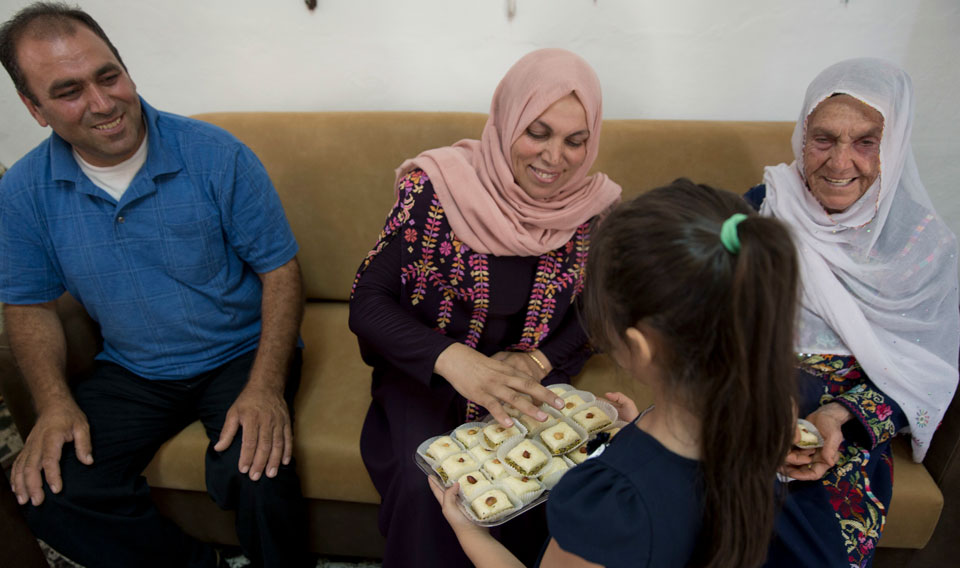
One of the distinctive features of Michigan is that one of the largest minority populations in the state is Arab-Americans, estimated to be between 153,000 and half a million, depending on the source. They come from a variety of national and religious backgrounds. Yemenis are one of the largest Arab ethnic groups here, but there are also Lebanese, Iraqis, Syrians, and others. Not all the Arab Americans are Muslims; many come from Christian communities in their countries of origin. This heterogeneous population is concentrated in the Detroit Metropolitan area, especially in the cities of Dearborn and Hamtramck, and they could make the difference in this election.
In the past, Arab-American voters have been divided evenly between Republicans and Democrats, with a fairly large number of independents also. However, in Michigan and nationwide, there has been a big movement of this population into the Democratic Party camp in recent elections. Like other groups whose immigration to the United States has been fairly recent overall, there appears to be a big interest in what is going on in their countries of origin, where many have close relatives.
Aggressive U.S. policies in alliance with the successive right-wing governments in Israel of Ariel Sharon and Benjamin Netanyahu have intensified under Republican administrations in Washington. Although Democrats have hardly been faultless on such issues, the Republicans, especially Trump, are likely seen as much worse. During the administration of George W. Bush, there was widespread persecution of Arab-Americans and Muslims after the terrorist attacks of September 11, 2001.
By the time we get to Trump, there are the wholesale “Muslim bans” on people entering the U.S., open Muslim-bashing from the White House, and the wholehearted embrace of the most chauvinistic and oppressive policies of the Israeli government. The nonstop bombardment of the civilian population of Yemen by Trump-allied and -abetted Saudi Arabia also can’t help but drive Arab-Americans away from the Republicans.
In the 2016 elections, Arab-Americans voted for Clinton over Trump by 60% to 26%, and given all that has happened since then, this gap is likely to widen in 2020.
The results of this dynamic were already seen in the Democratic Primary in Michigan, where there was massive support in the Arab-American Community for Bernie Sanders—which had also happened in 2016. According to some, this was due to Sanders’s positions on the issues, but also due to a high quality Sanders campaign operation in places like Dearborn, with campaign literature in Arabic and door-to-door work. In the end, Biden won that primary, and the question is now whether the enthusiasm for Sanders will carry over to Biden and the Democrats on Nov. 3.
A major asset for the Democrats in the Arab-American community is Congresswoman Rashida Tlaib, one of the famous “Squad,” who is of Palestinian origin. The district she represents, the 13th, is not seen as being in play, but it is part of the Detroit metropolitan complex where Arab-Americans and Muslims play a potentially important role. In this year’s primaries, she easily defeated her challenger in spite of all obstacles, and because of, not in spite of, the extremely progressive positions she has espoused on issues domestic and foreign.
In addition to Tlaib’s seat, the 12th District, which includes Dearborn, is currently considered to be a safe seat for the Democrats. It is currently represented in the House by Debbie Dingell. Hamtramck, in the 14th, is Rep. John Conyers’ old district and is currently represented by Democrat Brenda Lawrence. It’s also seen as an easy hold.
Down-ballot battles
Overall though, Michigan is a battleground state, according to most of the big analyst outfits, including the Cook Political Report, Ballotpedia, and others. Trump’s victory in the state in 2016 was key to the electoral college victory that put him in the White House. That election was amazingly close in Michigan: Trump got 47.54% of the vote, Hillary Clinton got 47.27%, and the rest went to minor party candidates, including the Green Party’s Jill Stein.
This year, Michigan is again a battleground state in the presidential election. The Cook Political Report classifies the state, with its 16 electoral votes, as “leaning Democrat.” But in a close race, the votes of the large Arab-American population could provide the margin of victory. The Senate seat of Democrat Gary Peters, challenged by right-wing Republican John James, currently “leans Democrat” also.
As far as House seats, those in major urban concentrations appear to be safe for the Democrats, but there are a number which are being seen as in play, none of them are considered “toss ups.”
In the 3rd Congressional District, in the Southwestern part of the state’s Lower Peninsula, the resignation of incumbent Justin Amash from the Republican Party, and his decision not to run for re-election, leaves the seat open. The racial/ethnic demographics are 84.2% white, 7.9% Black, 6.89% “Hispanic.”
Also in the same region of the state, the 6th Congressional District, which includes the cities of Benton Harbor (which is mostly African-American) and Kalamazoo, is also categorized as “leaning” in favor of the Republican incumbent, Fred Upton. The district is 82.2% white, 8.4% Black, and 5.3 % “Hispanic.” Upton won his seat last time 50.24% to his Democratic rival’s 45.75%. This year, his Democratic opponent is Elena Oelke.
Still in the southern part of the Lower Peninsula and covering part of the metropolitan area of Lansing, the state capital, is the 8th Congressional District. It was long a GOP stronghold, but the Democratic incumbent, Elissa Slotkin, beat the Republican here 50.6% to 46.8% in 2018. Her right-wing Republican opponent this year, Paul Junge, is running on a platform that is anti-immigrant, anti-Obamacare, and anti-big government. This district, too, is overwhelmingly white: 83.7% white, only 5.5% Black, 4.5% Asian, and 3.8% Hispanic. Cook classifies it as leaning Democrat, but in 2016, Trump carried the district.
In the 11th, another district formerly regarded as a Republican stronghold to the north and west of the Detroit metropolitan area, 82.2% of the population is white, 7.6 % Asian, 5% Black, and 3.1 % Hispanic. In 2018, the incumbent Democratic representative, Haley Stevens, beat her Republican opponent 51.8% to 45.2%. This year, Cook Political Report says the district leans Democrat, but it is another that Trump carried in 2016. The Republican candidate, Eric Esshaki, is running on a conservative anti-regulation, pro-business platform.

Statewide, there is a federal Senate election in Michigan in 2020. The incumbent Democrat, Gary Peters, beat his 2014 Republican opponent 54.61% to 41.33%. This year, the Republican candidate is John James, who is African-American but a strong Trump supporter running on a “pro-life”, anti-immigrant, and anti-Obamacare platform. It’s another that, for now, leans Democrat.
The margin of victory
The extremely narrow margin in the presidential vote across Michigan helped to put Trump in the White House in 2016, so mobilizing the vote of the Arab-American and Muslim communities is key to beating him this time.
Trump will be weak in these communities due to his foreign and domestic security policies. However, this does not automatically translate into a sweep for Biden. It will depend not only on Trump’s negatives but also on Biden’s positives, which have not been spelled out in detail with regards to the Arab-American and South Asian Muslim communities (there is a considerable Muslim population from Bangladesh).
As in so many other places, and with so many other voting demographics, the results of the election will depend on maximizing turnout on Election Day, which the Republicans are doing everything they can to suppress.
Except for the 11th Congressional District, which has a fairly large population classified by the 2010 census as “Asian,” the Detroit metropolitan area is the place where the impact of progressive Arab-American and South Asian populations has most probability of determining the outcome of the elections in Michigan, and therefore in the nation.
As none of the Democratic-held congressional districts in the Detroit area are in danger of being won by the Republicans, the issue of the turnout of these populations is of the greatest significance for the presidential race nationally and for the U.S. Senate seat in Michigan.
Everything should be done to turn out the Arab-American and Muslim voters in Dearborn, Hamtramck, and Detroit metro area on Nov. 3. Even if these are safe Democratic Congressional seats, maximizing turnout is essential to beating Trump and winning the Senate seat. There should be literature in Arabic as well as English and Spanish distributed in these areas. Likewise, full use should be made of social media focused on these populations, forcefully pointing out the danger to Arab-Americans, Muslims, and other non-Anglo populations here and their communities of origin in the Middle East should Trump be re-elected and the Republicans keep their majority in the Senate.












Comments